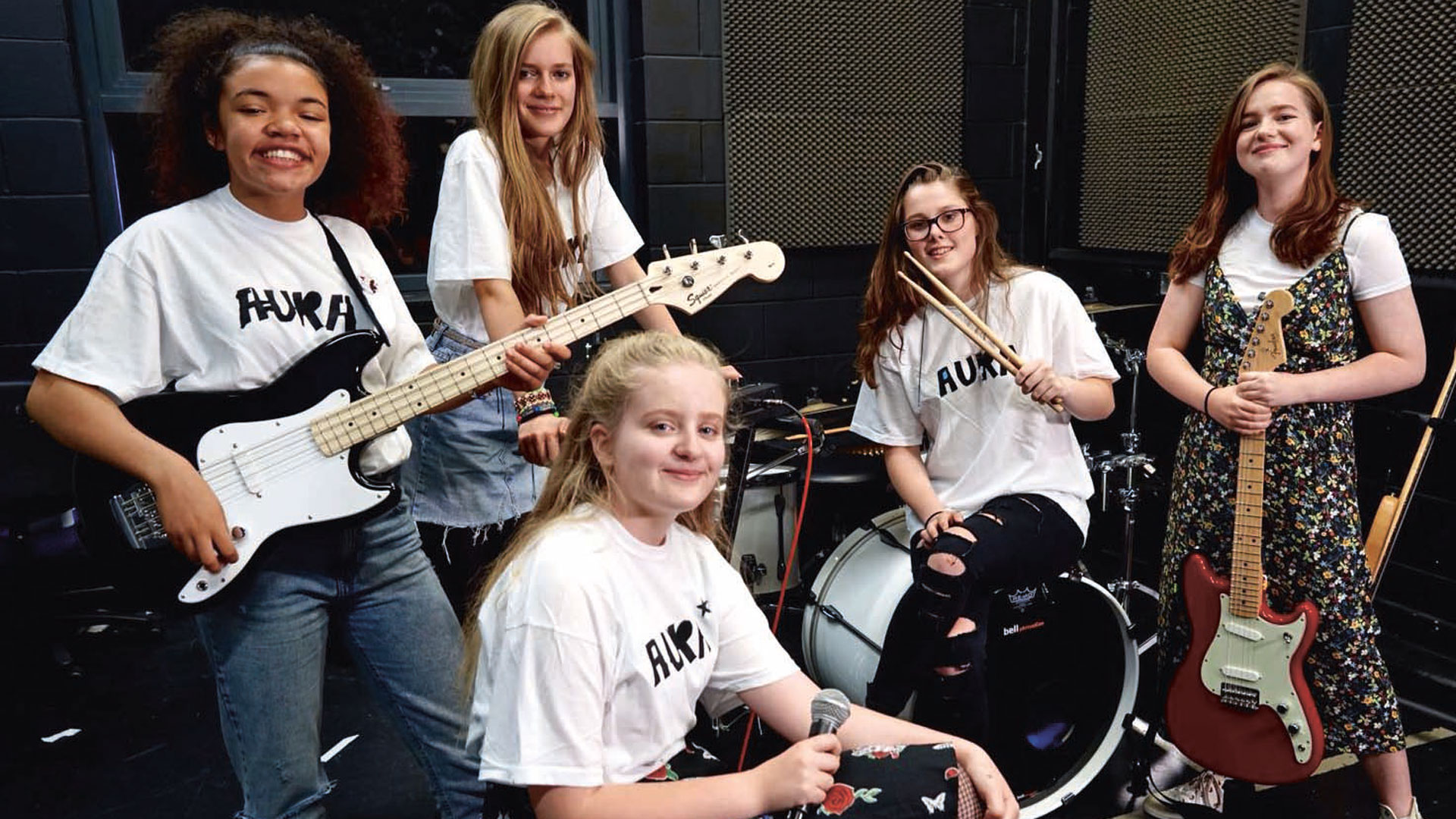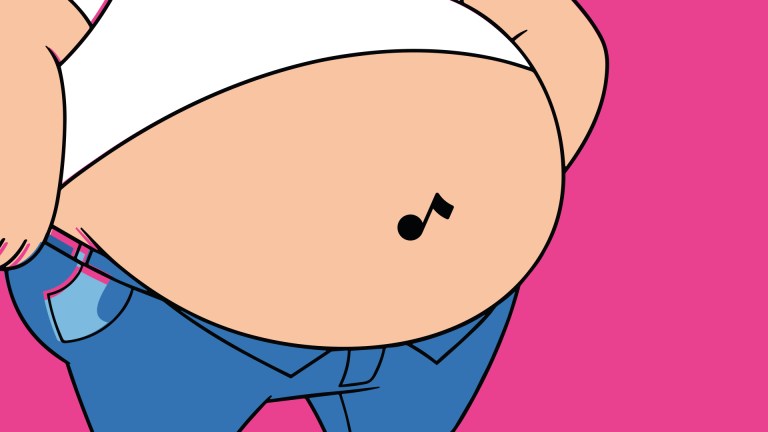The camp welcomes young girls of all musical abilities to join. Over the space of six days they work together with industry experts to learn an instrument, form a band and write a song which they perform on stage at a gig for family, friends and the public at the end of the camp.
“A central part of what we do is getting people up on stage and performing. We wouldn’t run a camp without a public performance at the end,” Smith says.
“You can push yourself really hard to do something but if you do it on your own without any support it’s easy to give in.
“That’s where we come in. The camp gives them that opportunity and that structure to challenge themselves and get out there and do something they maybe wouldn’t have done otherwise.”
According to the Millennium Cohort Study, nearly a quarter of girls aged 14 are depressed and twice as many are unhappy with their appearance compared to boys of the same age.
Advertising helps fund Big Issue’s mission to end poverty
With young women confronting a growing mental health crisis, could it be down to summer camps like Girls Rock to turn the tide?
“We’re a positive response to a rubbish situation,” says Smith.
“Empowered is a really overused word, but it’s true in this case. The girls really do leave feeling more confident.
“What we do is loads of fun, it’s really accessible and they get a lot out of doing it at an individual level. And we hope that by creating that change at that level that will kind of spiral out and impact not only on the lives of the individuals that will take part but also the communities these people are in.”
Half of the camp participants are given places for free, referred through organisations working with children, like schools, youth groups and mental health services.
And Smith says some parents feel the camp is the first thing their teenager has been interested in for years.
Advertising helps fund Big Issue’s mission to end poverty
The camp’s own research reported a positive development on body image, with 46 per cent of the 100+ lifetime participants saying they felt more positive about it after the camp.
With festivals coming under fire every year for the gender split of their headline acts, getting young women into the music world and comfortable on stage is an important part of the process to address the balance, as 45 global festivals signed up to a scheme this February that promised a 50/50 split by 2022.
“The girls do have a really good understanding of the limits that are placed on them by society because of their gender,” Smith says.
“At the camp we have workshops about representation in the media of women in music and what it means for girls to take up space on stage and perform and have their voices heard.
“They know what’s going on, we don’t have to tease anything out of them and we don’t have to prompt them much to get them acknowledging realities of sexism and racism in their lives. It’s definitely at the forefront of their minds and they have a good understanding of what is going on.”
Not only is Girls Rock building confidence, boosting self-esteem and equalising opportunity, it might just be the saviour of music festivals to come.
Advertising helps fund Big Issue’s mission to end poverty
Girls Rock London runs from July 30 to August 4
Visit girlsrockcampalliance.org for more on Girls Rock! and to find a camp near you.
Image: Aura, 2017 Girls Rock London Summer Camp, Yulia Hauer









